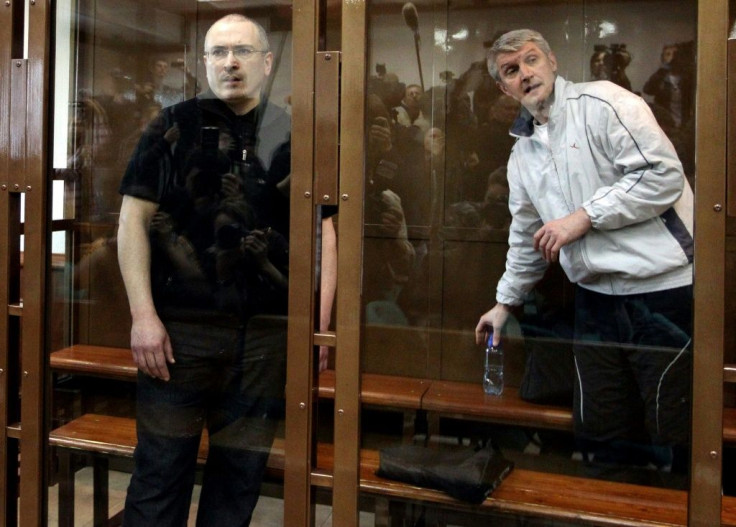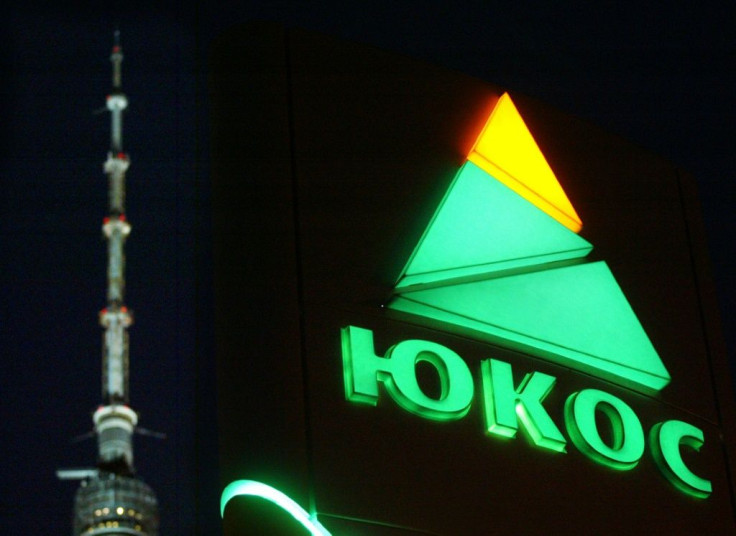Court Backs Yukos Shareholders Against Kremlin In $50 Bn Case

A Dutch court Tuesday upheld an appeal by shareholders of the dismantled oil giant Yukos in a landmark ruling, boosting their fight in a $50 billion case for compensation.
The ruling overturns a lower Dutch court's ruling in favour of Russia, which had contested an original decision by the Hague-based Permanent Court of Arbitration that awarded shareholders billions of dollars after Yukos was dismantled in the mid-2000s.
"The Appeals Court in The Hague decided today that a previous ruling in favour of the Russian Federation was incorrect," the court said in a statement, adding an original $50 billion award by the PCA -- an international arbitral tribunal -- "is in force again".
Russia swiftly said it would appeal.
The long-awaited ruling comes almost 14 years after the once powerful company filed for bankruptcy and follows a controversial 2014 ruling that ordered Russia to pay out billions of dollars in compensation to its former shareholders.
The PCA that year ruled that Russia had forced Yukos into bankruptcy with excessive tax claims and then sold off its assets to state-owned companies.
It based its ruling on the provisions of a multilateral 1994 accord, the Energy Charter Treaty, which aimed to promote energy security and which says a dispute between a member state and a foreign investor could be solved through arbitration.
It then ordered Moscow to pay more than $50 billion to the former shareholders -- a record award for the arbitration tribunal.
In a shock turnaround a local Dutch court in 2016 annulled the PCA's decision, saying the legal body was "not competent" to rule in the case, based on the treaty.
But appeals judges Tuesday disagreed with the lower court's findings, saying "Russia was under an obligation to enforce the treaty unless it was in breach of Russia law."
"This court finds that there was no breach of Russian law."
Yukos' main shareholder GML hailed the ruling.
"A brutal kleptocracy has been held to account," chief executive Tim Osborne said in a statement.

Tuesday's decision however may not be the end of the saga: the parties may still fight the decision at the Dutch Supreme Court, officials said.
Moscow "will continue to defend its legitimate interests and, in an appeal, contest the verdict", Russia's justice ministry said in a statement.
Yukos, once Russia's biggest post-Soviet oil company, was broken up after its former owner, Kremlin critic and ex-tycoon Mikhail Khodorkovsky, was arrested in 2003.
Khodorkovsky says the case against him was always political.
"The expropriation of Yukos was not about taxes, but about the fight against political opponents," Khodorkovsky, who lives in exile in London, said on Twitter.
His arrest came after Russian President Vladimir Putin warned the nation's growing class of oligarchs against meddling in politics.
Yukos was sold off in opaque auctions to state companies led by Rosneft between 2004 and 2006. State-owned Rosneft was then small, but has since grown into one of the world's biggest listed oil companies by production volume.
The claimants have been seeking compensation for what they say are their losses caused by the break-up of Yukos.
The question "relates to the circumstances of the Yukos takeover by the Russian oligarchs during its privatisation in 1995 and 1996," Russian government lawyer Andrea Pinna told AFP ahead of the ruling.
As the Soviet Union crumbled, unscrupulous businessmen amassed immense fortunes and influential empires by scooping up former Soviet assets -- particularly in raw materials -- at bargain-basement prices.
"Russia considers that the acquisition of Yukos was only possible through corruption and other illegal acts," Pinna said.
Emmanuel Gaillard, representing former shareholders, told AFP that "Russia is making considerable diplomatic efforts to try and discredit the players in this case" which he called "the greatest expropriation of the 21st century".
Khodorkovsky, who is no longer a stakeholder, spent a decade in prison on charges of tax evasion, fraud and embezzlement. He was suddenly pardoned by Putin in 2013 and flown out of the country.
© Copyright AFP 2024. All rights reserved.





















